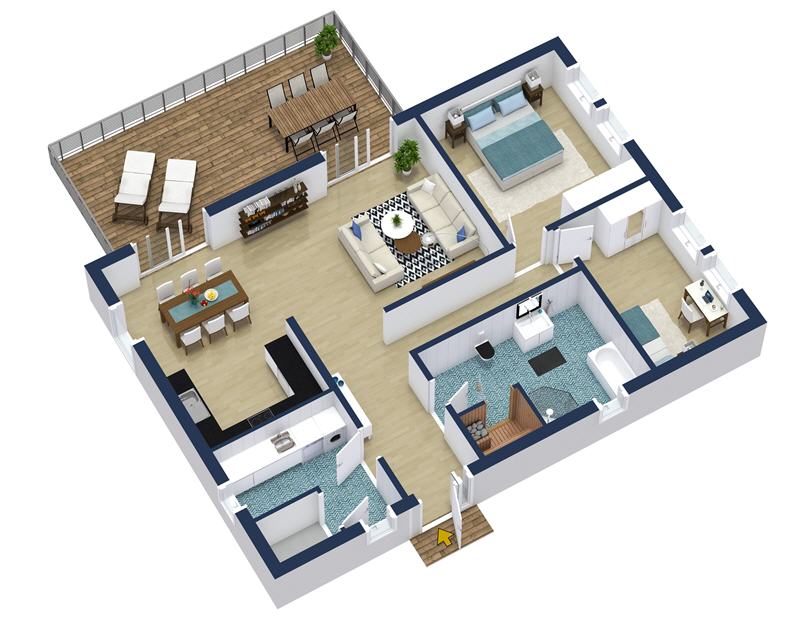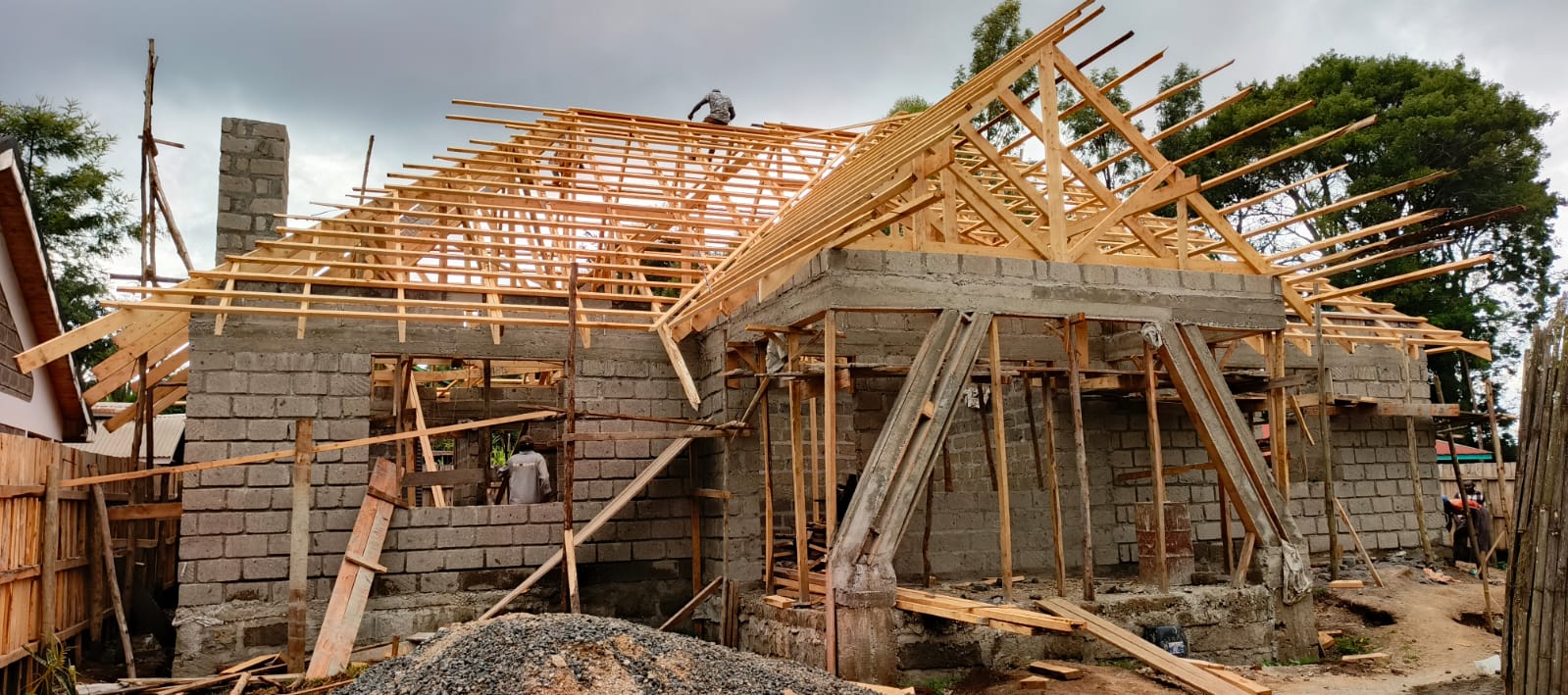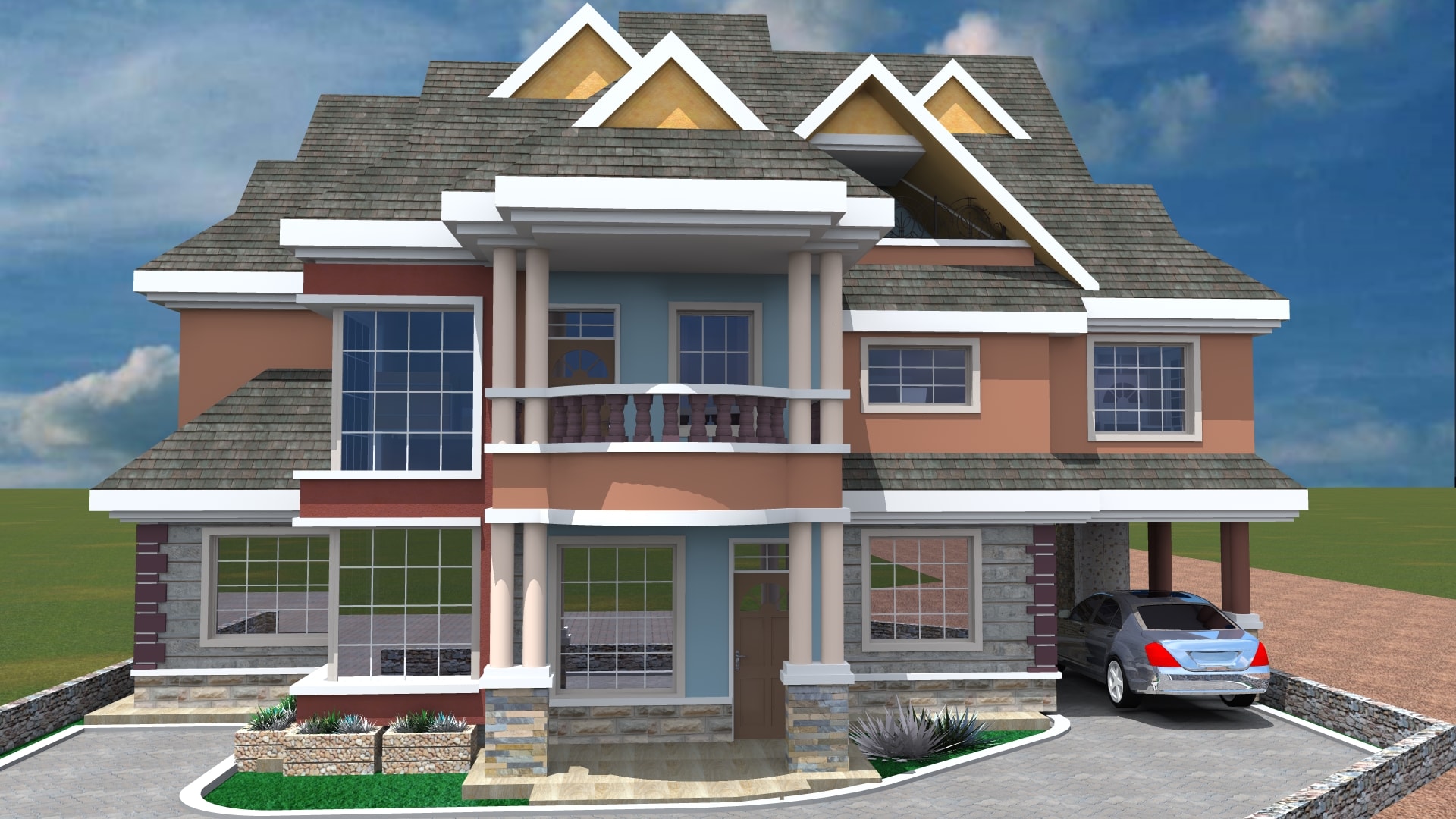Introduction
Choosing the right foundation type in Kenya is a crucial first step for any construction project. The foundation supports your entire building, ensuring stability, safety, and durability. Making the wrong choice can lead to structural issues, high repair costs, or even project delays.
In Kenya, there are several common foundation types, each suited to specific soil conditions, building sizes, and budgets. From strip foundations for small residential homes to pile foundations for heavy structures, understanding the options helps you make an informed decision.
Quick overview of types of foundations in Kenya:
Shallow foundations: Strip, pad, and raft foundations, ideal for stable soil.
Deep foundations: Pile and under-reamed piles, used for weaker soils like black cotton soil.
Specialised foundations: Basement and slab-on-grade foundations for unique building designs.

Common Types of Foundations in Kenya
Kenya offers a variety of foundation types to suit different building projects, soil conditions, and budgets. Choosing the right foundation ensures your home or building remains strong and durable for years. Below, we break down the main types, their pros and cons, and typical costs.
Shallow Foundations
Shallow foundations are ideal for buildings on stable soil. They are easier and quicker to construct, making them a popular choice for residential homes in Kenya.
1. Strip Foundations
Description & Suitability: Continuous strips of concrete supporting walls; best for small to medium homes on firm soil.
Pros: Cost-effective, simple to construct, suitable for most residential projects.
Cons: Not suitable for weak or expansive soils.
Typical Costs: KES 1,500 – 2,500 per square meter (materials and labour).
2. Pad Foundations
Description & Suitability: Individual pads under columns; ideal for low-rise buildings with point loads.
Pros: Requires less excavation, simple design.
Cons: Limited to lighter structures.
Typical Costs: KES 2,000 – 3,000 per square meter.
3. Raft Foundations
Description & Suitability: Large concrete slab covering the entire building footprint; suitable for weak or uneven soils.
Pros: Distributes load evenly, reduces settlement risks.
Cons: Higher cost and more complex construction.
Typical Costs: KES 3,500 – 5,000 per square meter.
Deep Foundations
Deep foundations are necessary when the surface soil cannot support the building load. They transfer weight to deeper, more stable layers.
1. Pile Foundations
Description & Suitability: Concrete or steel piles driven deep into the ground; used for heavy buildings or poor soil.
Pros: Excellent load support, stable on weak soil.
Cons: Expensive and requires specialised equipment.
Typical Costs: KES 4,000 – 6,500 per linear meter.
2. Under-Reamed Piles
Description & Suitability: Piles with bulb-shaped bases; ideal for black cotton soil and high water tables.
Pros: Reduces soil swelling effects, very stable.
Cons: Higher construction cost, needs skilled labour.
Typical Costs: KES 5,000 – 7,000 per linear meter.
Specialized Foundations
Some buildings require specialised foundations for unique designs or soil challenges.
1. Basement Foundations
Description & Suitability: Excavated foundations for underground floors; suitable for multi-storey homes or offices.
Pros: Adds usable space, strong and durable.
Cons: Expensive excavation, higher construction complexity.
Typical Costs: KES 6,000 – 8,500 per square meter.
2. Slab-on-Grade Foundations
Description & Suitability: Concrete slab poured directly on the ground; suitable for low-rise buildings in stable areas.
Pros: Quick to build, cost-effective, minimal excavation.
Cons: Not ideal for poor drainage areas.
Typical Costs: KES 2,500 – 4,000 per square meter.
Factors Influencing Foundation Choice in Kenya
Selecting the right foundation type in Kenya depends on several important factors. Understanding these can save costs, prevent structural issues, and ensure your building lasts for decades.
Key factors to consider:
Soil Types: Red Soil vs. Black Cotton Soil
Red soils are generally stable and suitable for shallow foundations like strip or pad foundations.
Black cotton soil expands and contracts with moisture changes, requiring deep foundations such as under-reamed piles to prevent cracking.
Climate Considerations
Areas with heavy rainfall may require proper drainage systems to protect foundations. Seasonal changes can affect soil stability, influencing foundation depth and type.
Load-Bearing Requirements
The size and weight of your building determine the foundation type. Multi-storey buildings or commercial structures often need deep foundations like piles for stability.
Budget Constraints
Shallow foundations are generally more affordable for small homes. Deep or specialised foundations increase construction costs but provide long-term stability.
Cost Breakdown of Foundation Construction in Kenya
Understanding the cost of foundation construction in Kenya helps homeowners budget effectively and avoid unexpected expenses. Costs vary depending on foundation type, materials, labour, and location.
Average Costs per Square Meter:
Shallow foundations: KES 1,500 – 5,000 per m² depending on type (strip, pad, raft).
Deep foundations: KES 4,000 – 7,000 per linear meter for piles or under-reamed piles.
Specialised foundations: KES 2,500 – 8,500 per m² for basement or slab-on-grade foundations.
Labour vs. Material Costs:
Materials: Cement, steel, sand, and aggregates usually account for 60–70% of the total cost.
Labour: Skilled labour for excavation, piling, or concrete work makes up the remaining 30–40%.
Regional Cost Variations:
Urban areas like Nairobi or Mombasa tend to have higher labour and material costs. Rural areas may have lower labour costs but limited access to construction materials, affecting overall pricing.
Pros and Cons Summary Table
To make it easier to compare, here’s a quick reference for foundation types in Kenya. This summary helps homeowners and builders decide which foundation suits their project, soil type, and budget.
Shallow Foundations:
Pros: Cost-effective, simple to construct, suitable for stable soils.
Cons: Not ideal for weak or expansive soils.
Deep Foundations:
Pros: Excellent load support, stable on poor soils like black cotton soil.
Cons: Higher construction cost, requires specialised equipment.
Related post: How to Maximize Rental Income from Apartments in Nairobi (2025 Guide)
Specialised Foundations:
Pros: Can handle unique designs, adds durability and usable space (e.g., basements).
Cons: Expensive, complex construction, longer build time.
Related post:
HOUSE DESIGNS IN KENYA AND COST
Best Locations to Build a 4 Bedroom Bungalow in Kenya
House Designs in Kenya: Trends and Options for Every Budget
Why Choose a 3-Bedroom Maisonette Plans with Balcony
Frequently Asked Questions (FAQ)
Here are the most common questions about foundation types in Kenya, costs, and suitability. These answers help homeowners make informed decisions before starting construction.
1. What is the most affordable foundation type in Kenya?
Shallow foundations like strip or pad foundations are usually the cheapest option for residential homes.
2. How do I choose the right foundation for black cotton soil?
Deep foundations such as under-reamed piles are ideal for expansive soils to prevent cracking.
3. What are the typical costs of laying a foundation for a 3-bedroom house in Kenya?
Costs range from KES 1,500 to 8,500 per m², depending on foundation type and soil conditions.
4. Can I use a strip foundation on expansive soils?
Strip foundations are not recommended on black cotton soil, as they may crack due to soil movement.
5. What factors should I consider when selecting a foundation type in Kenya?
Key factors include soil type, climate, load-bearing requirements, and budget constraints.
6. How deep should foundations be in Nairobi?
Depth varies by soil type and building size, typically 1–2 meters for shallow foundations and deeper for piles.
7. Are basement foundations suitable for all types of soil in Kenya?
They are best for stable soils and may require extra waterproofing in high water table areas.
8. What are the maintenance requirements for slab-on-grade foundations?
Ensure proper drainage, avoid excessive water pooling, and repair minor cracks early to prevent major damage.





13 thoughts on “Types of Foundations in Kenya – Costs & Pros/Cons”